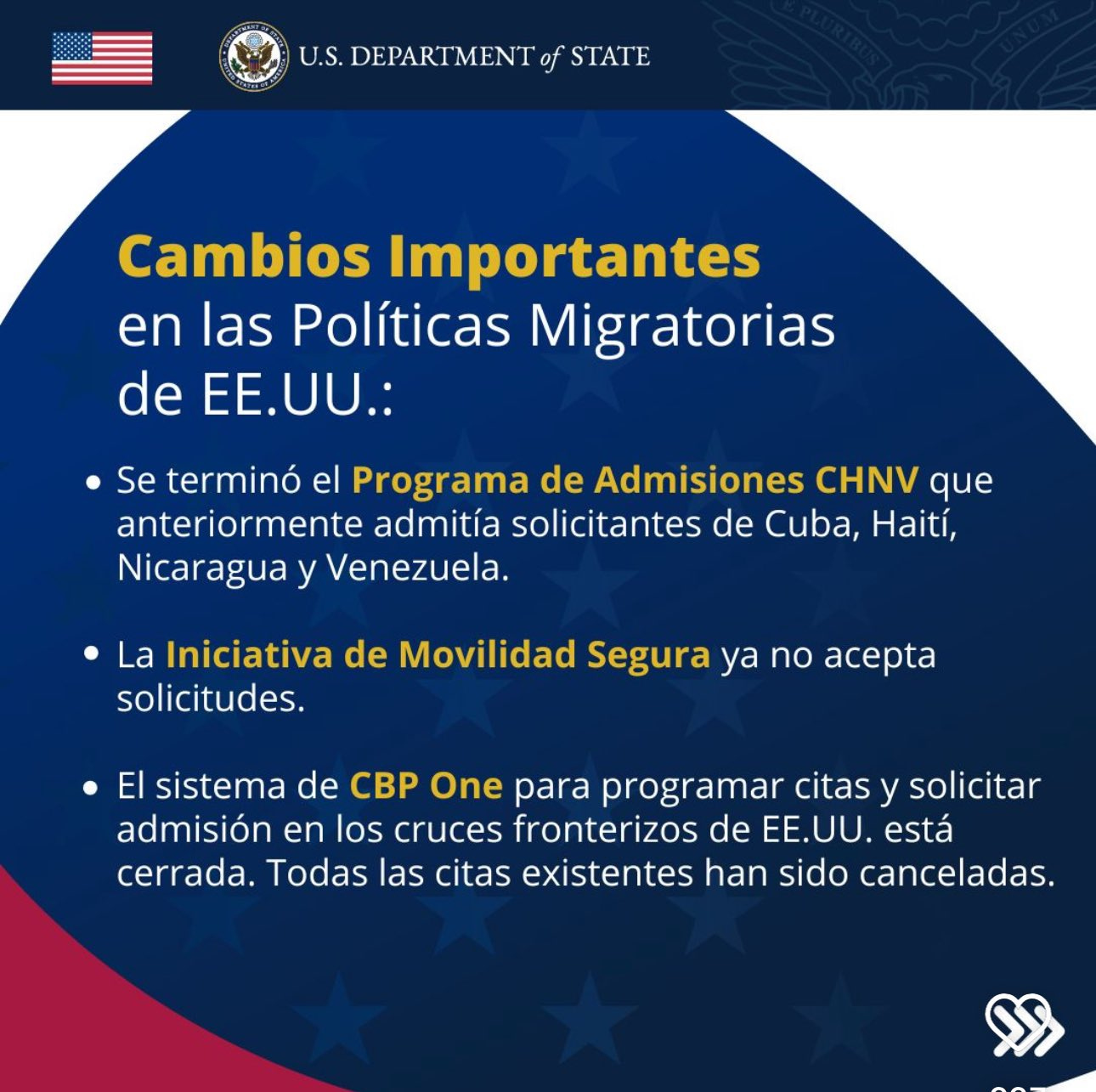BREAKING: US Embassy of Venzuela Announcement the Cancellation of the Biden CHNV Immigration Program-Responsible for over half of a million migrants
The CHNV program was launched by the Biden administration, starting with Venezuelans in October 2022 and expanding to include Cubans, Haitians, and Nicaraguans in January 2023. It allowed up to 30,000 eligible individuals per month from these four countries to enter the U.S. legally for a temporary period of up to two years. The goal was to reduce irregular migration at the southwest border by providing a lawful pathway, while addressing humanitarian crises in these nations. To qualify, applicants needed a U.S.-based sponsor to file a Form I-134A, pass national security and public safety vetting, and arrange their own travel to a U.S. airport. Once here, they could apply for work authorization but weren’t granted permanent status—parole is just temporary permission to stay.
The program saw significant use: by October 2024, over 530,000 people—roughly 110,000 Cubans, 211,000 Haitians, 93,000 Nicaraguans, and 117,000 Venezuelans—had entered. It was credited with slashing illegal border crossings from these countries by up to 98% compared to pre-program peaks in 2022. However, it wasn’t without issues. Critics pointed to fraud risks, like sponsors using fake identities or dead people’s info, and argued it bypassed Congress’s immigration caps. A federal lawsuit from 21 states, led by Texas, challenged its legality, but in March 2024, Judge Drew Tipton dismissed it, ruling the states lacked standing since border encounters dropped, not rose.
Things shifted in late 2024. On October 4, the Biden admin announced no re-parole extensions, meaning once the two-year terms (starting from entry dates) expired, people had to find other legal status—like asylum or Temporary Protected Status (TPS)—or leave. Then, on January 20, 2025, President Trump, newly sworn in, ended the program entirely via executive order. This stopped new applications, and there’s talk of revoking existing paroles, potentially putting those still under CHNV into deportation proceedings if they haven’t secured alternative status.


